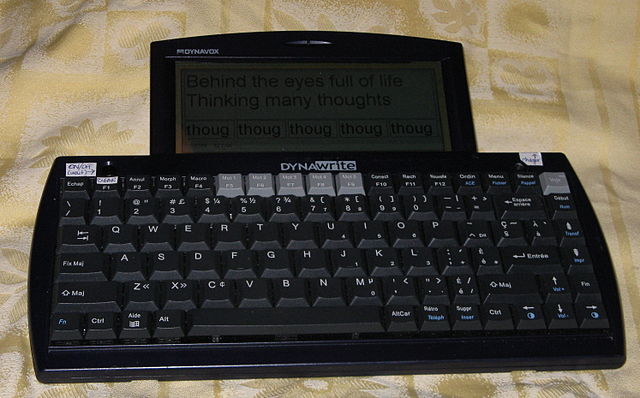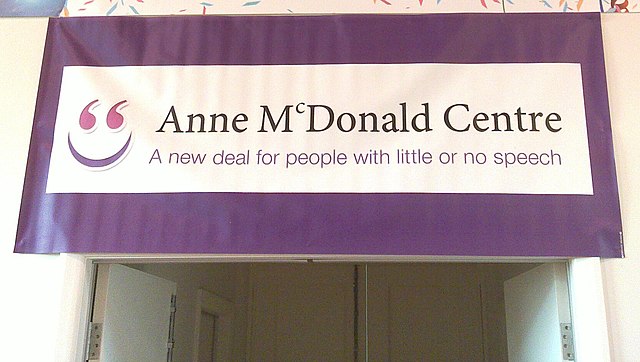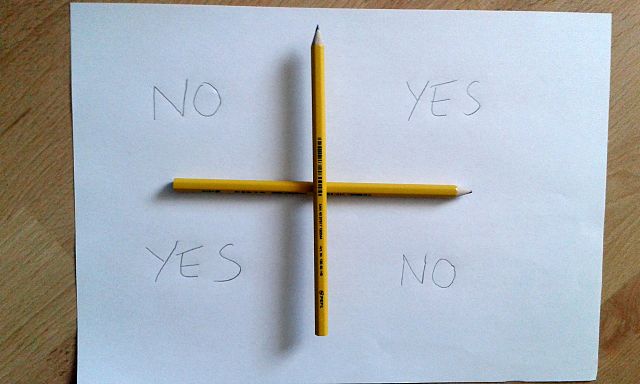Facilitated communication
Facilitated communication (FC), or supported typing, is a scientifically discredited technique, which claims to allow non-verbal people, such as those with autism, to communicate. The technique involves a facilitator guiding the disabled person's arm or hand in an attempt to help them type on a keyboard or other such device which they are unable to properly use if unfacilitated.
Keyboard of the type used in facilitated communication
The Anne McDonald Centre, a facilitated communication centre in Melbourne, Australia, directed by Rosemary Crossley
The ideomotor phenomenon is a psychological phenomenon wherein a subject makes motions unconsciously. Also called ideomotor response and abbreviated to IMR, it is a concept in hypnosis and psychological research. It is derived from the terms "ideo" and "motor". The phrase is most commonly used in reference to the process whereby a thought or mental image brings about a seemingly "reflexive" or automatic muscular reaction, often of minuscule degree, and potentially outside of the awareness of the subject. As in responses to pain, the body sometimes reacts reflexively with an ideomotor effect to ideas alone without the person consciously deciding to take action. The effects of automatic writing, dowsing, facilitated communication, applied kinesiology, and ouija boards have been attributed to the phenomenon.

An example of table-turning in 19th century France. A circle of participants press their hands against a table, and the ideomotor effect causes the table to tilt in such a way as to produce a written message, in a manner similar to a ouija board.
The Charlie Charlie challenge relies on the ideomotor phenomenon to produce answers to questions provided by its participants — the breathing from the participants anticipating a result causes the top pencil to rotate towards an answer




